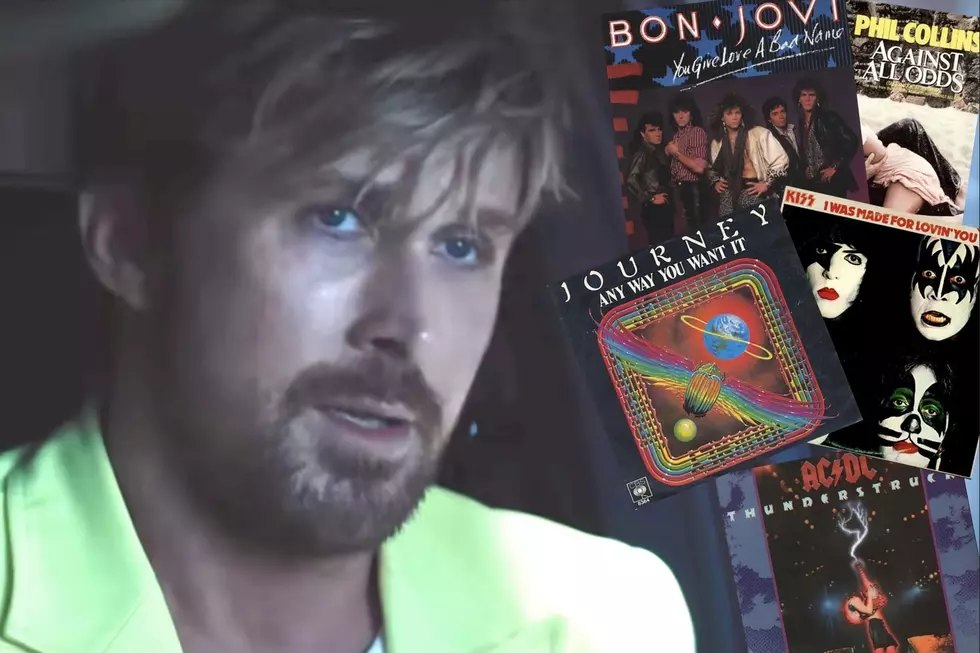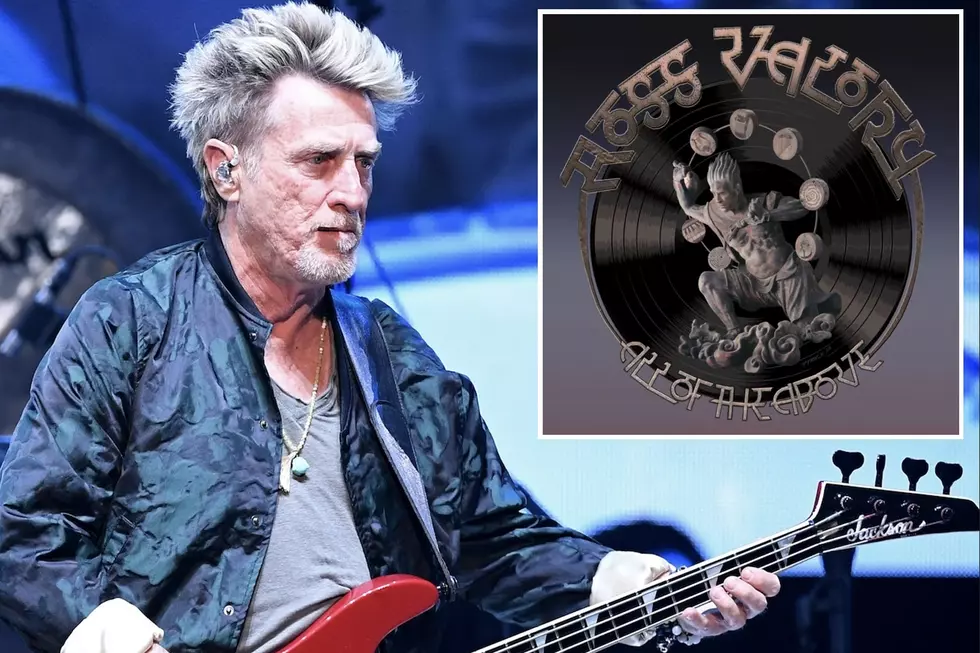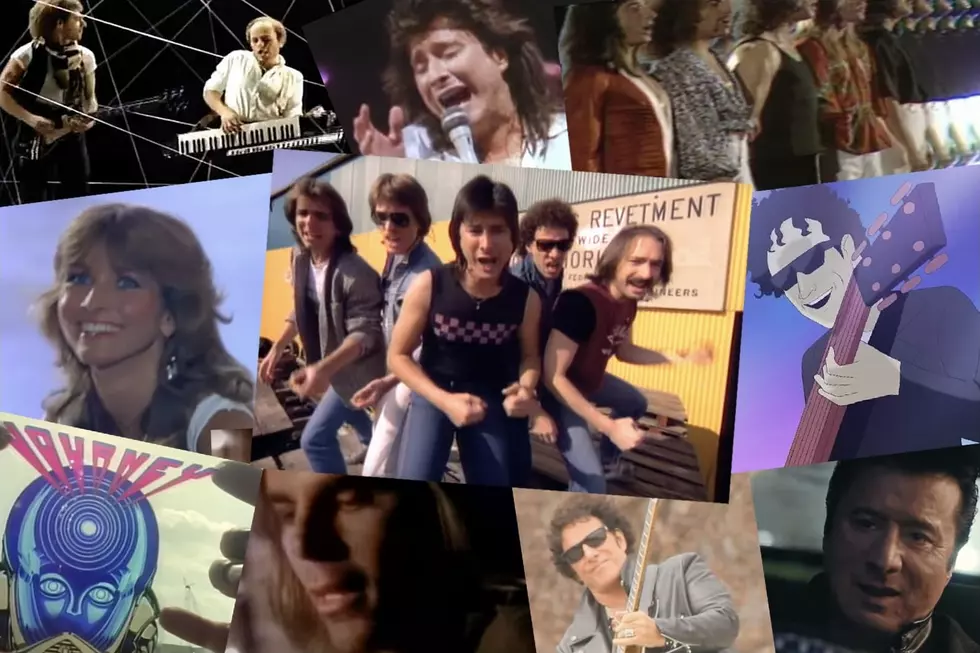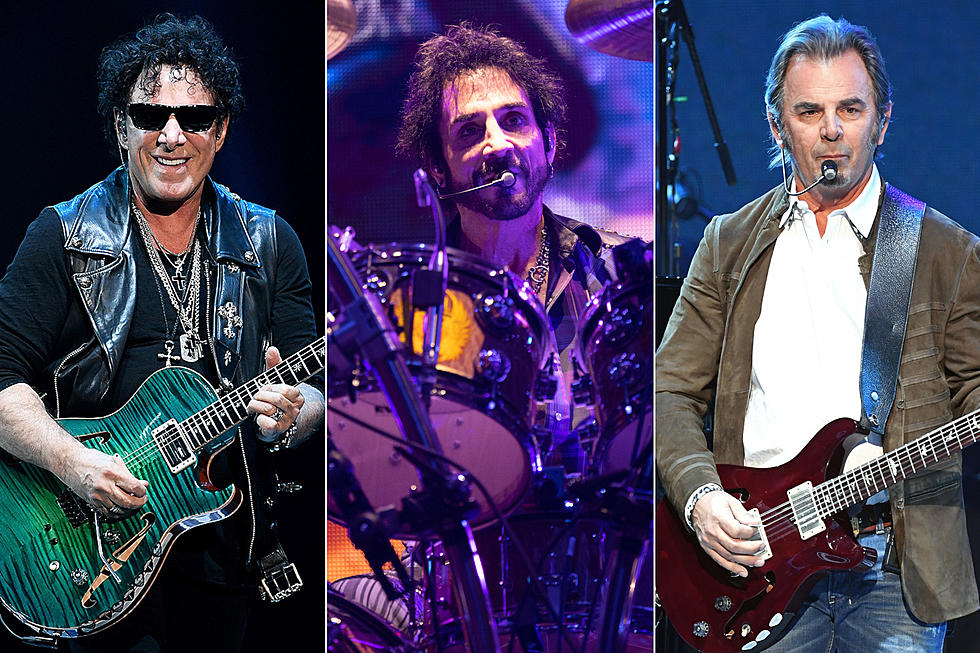
How Journey Roared Back With the Ferocious but Flawed ‘Eclipse’
In many ways, the first cuts on Journey's Eclipse recall the wide-open heavy fusion of the the band's early Gregg Rolie-fronted records, a period when guitarist Neal Schon pulled and stretched his muse. At the same time, singer Arnel Pineda possesses a Steve Perry-like penchant for soaring expectancy.
For longtime fans, that might have made Eclipse the best of both worlds: a musically dense recording in the style of 1977's underrated Next, and a loud one, but at the same time one that doesn't completely abandon the visceral mainstream pop sensibilities that defined the band’s subsequent hitmaking period in the '80s.
As with the album itself, however, sales were strongest as they got going. Eclipse debuted at No. 13 upon release on May 24, 2011, but quickly faded – leaving its legacy in doubt. Journey haven't released a studio album since.
Beginning with the opening track, "City of Hope" (a stirring call for optimism that eventually deconstructs into a towering wall of Schon), there's a welcome and nervy sense of abandon. Better still is the ambitious "Edge of the Moment," with its wave after crashing wave of guitars, and a foundation-rattling rhythm by bassist Ross Valory and now-departed drummer Deen Castronovo. Schon is by turns scorching, melodic, spacey, gurgling and nasty. And nothing like we’ve heard from him since the days of the spaceman fro.
"This is Journey," keyboardist Jonathan Cain told The Review-Journal at the time, "with big combat boots on — and a helmet and a rifle."
For awhile, anyway. Unfortunately, as with its chart performance, Eclipse couldn't sustain that initial level of broiling inventiveness. It seems they lost their nerve and, in trying to please everyone, perhaps pleased too few.
Still, truth be told, who figured Journey would even aspire to such things again? Especially in the wake of a period in which they rerecorded their Perry-era hits with a new singer. But here Pineda finally finds his voice. His maturation, as much as Schon's brilliantly retro freewheeling attitude, finally move Journey past those earlier imitative missteps.
Listen to Journey's 'Edge of the Moment'
The album's broader theme of peace-seeking in a fast-moving, violent world, first enunciated in "City of Hope," notably returns in "To Whom It May Concern." But Journey eventually begin to settle into more familiar environs and play more to expectations. So there's the counted-on balladry of "Tantra," though updated with a series of new-age aphorisms, and the hooky "Anything Is Possible" and "Ritual" — tracks that could easily have found a home on Journey's Raised on Radio or Bad English's self-titled 1989 debut, which also featured Cain, Schon and Castronovo.
There are other times when Eclipse doesn't shake things up enough. "She's a Mystery" simply mimics the Rolie-Schon era's music-making tics, suddenly transforming from a shuffling acoustic rumination into a squalling mess of riffs. "Someone" adheres too closely to a lighter, Escape-esque groove, seeming to cop to the post-Perry conundrum along the way: "You can't go back to where you’ve been," Pineda sings. "Are you ready to try again?"
And so, in its best moments, Eclipse is actually not a complete return to either form, but rather something in between. It doesn't entirely succeed, yet is nothing like the photocopying they'd once reduced themselves to. That makes Eclipse, even in half measure, as intriguing as anything Journey had done in a very long time.
Journey Albums Ranked
More From Ultimate Classic Rock









